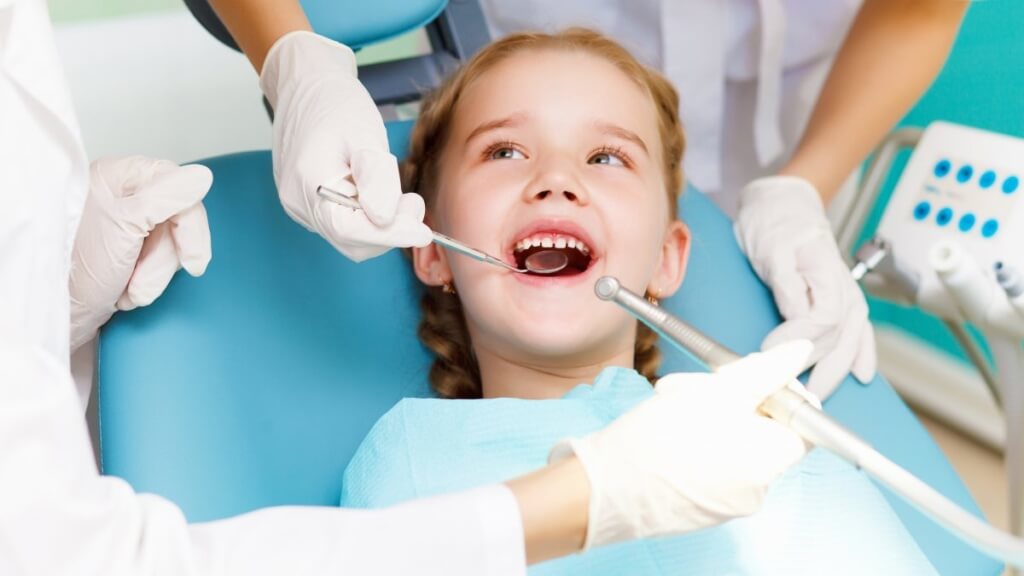
Throughout childhood, it is typical for some dental issues to arise. The worse of all for the child and the one parents find the most difficult to solve quickly is a toothache. Toddlers and toothache go together like a fish in the water. At some point, a child is sure to develop a toothache if/when their oral hygiene routine is not properly implemented consistently.
It is important for parents/caregivers to take measures to prevent a toothache from ever occurring. According to the American Academy of Pediatric Dentistry (AAPD), your child should meet his/her dentist after the appearance of the first teeth. This is in addition to administering a proper oral care routine at least twice daily. These two components working together, you will greatly reduce the risk of tooth pain for your child
During each visit, parents should bring up all concerns related to their child’s oral care. This includes toothache and other concerns. Below you’ll find some of the most common questions parents have about oral care for children.
How can I get my toddler to floss?
Sometimes, it feels like a daunting task to get your toddler to brush, let alone floss. Nevertheless, we’ve got a possible solution.
Consider this, flossing isn’t always conducted correctly by adults. When it comes to toddlers you should expect them to use an improper method as well at first. One of the best ways to checkup their technique is to ask them to help you floss. Saying “I’m not really sure how to do this, can you show me how you floss?” is a great way to both, get them to floss and check their technique.
You may also find it helpful to move the flossing outside of the bathroom. Maybe sit in the den, playroom or living room of your home where the child is more comfortable. Place the toddler on your lap and commence to flossing. For toddlers, the level of cooperation you will get varies, but getting it done to the best of your ability is the key here.
Is my child losing teeth to fast? to early?
The tooth fairy might find delight in your child losing his/her teeth, but for you, this may be a concern.
Children normally start losing their baby teeth between the ages of 5 and 7 years. They may lose one or two teeth within months of each other and this is normal. A child who loses a tooth just before 5 years old isn’t a reason to sound the alarm.
Children who experience early tooth eruption may also experience early tooth loss. If your child is 4 years old or younger and is experiencing tooth loss at a rapid rate, within weeks or one to two months from each other you may want to consult a dentist.
How does my child need fluoride toothpaste?
Fluoride is an essential component of any toothpaste. However, excess fluoride is harmful to your child’s teeth and may cause cavities and severe toothache. Therefore, it is best to choose a toothpaste that is made for children, these often have little to no fluoride. Adult toothpaste is not appropriate to use on children under 7.
There is a range of child-friendly toothpaste on the market today. You can pick some up the next time you are in Target, Walmart or even check with a health food store to see if they offer one with all-natural ingredients.
What foods or drinks contribute to better oral health in children?
Food and beverages are normally the chief issues in poor dental health. Parents and caregivers should take care to offer children the right foods and drink at the right age. Otherwise, tooth decay may occur.
In the case of beverages, AAPD recommends no soda or artificial juices for your children while the teeth are developing. You can offer them a diluted 100% fruit or vegetable juices as a replacement. The dilution step is extremely important because even “healthy” juices can have high sugar and acid content. It’s best to dilute at a rate of 1 part water and 2 parts juice. Offering water infused with organic whole fruits is also a treat that your child may enjoy.
As far as foods are concerned, the diet of a child isn’t much different from what an adult should be consuming. Children, like adults, should consume fewer foods with high sugar content and high acidity. These foods contribute directly to tooth erosion since they are often left on the teeth long enough to contribute to bacterial plaque build-up.
No matter what your child eats, the most important thing is to make sure they are brushing, rinsing and flossing at least twice per day.
Our Dental Practice in Monroe, NC
Monroe Family Dentistry is there for you and your children from day one and we are happy to work with you and your child to start habits from birth. If you live near Monroe, NC call us to schedule an appointment today at 704.776.4278.
These are just some of the services we provide. To learn more about our dental practice in Monroe NC and the services we provide, call us or submit an appointment request.






